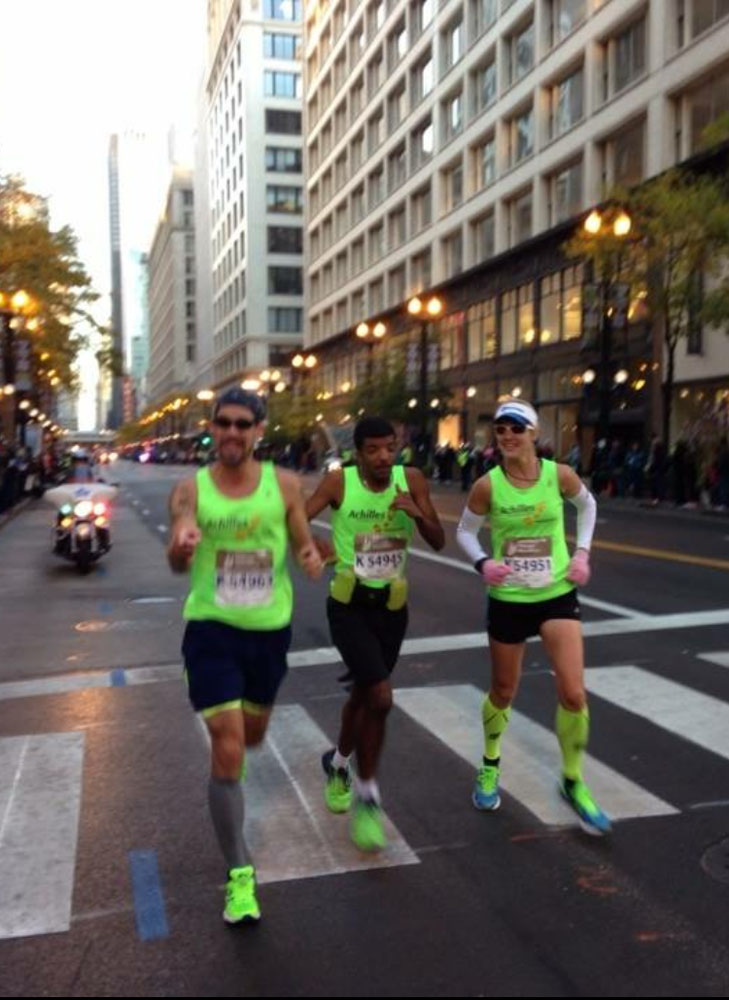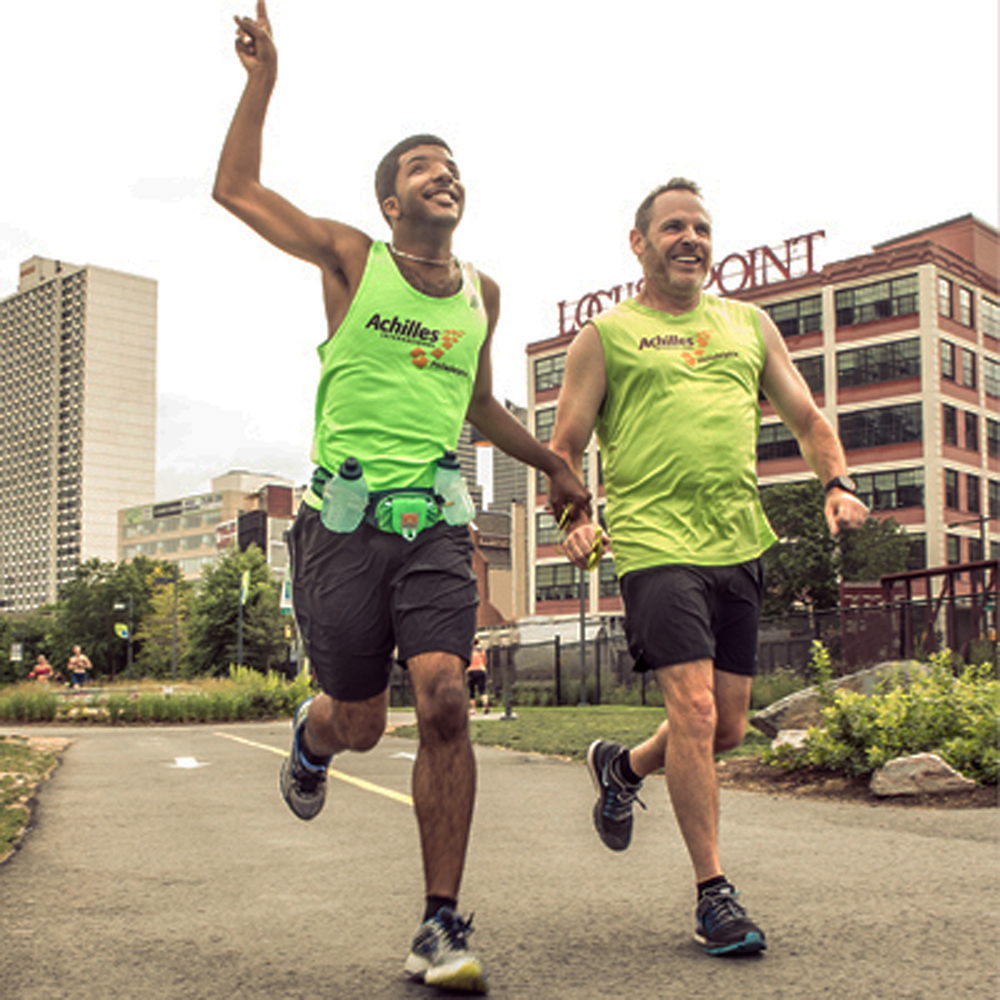Among Drexel’s most notable students, Sophomore business major Kinzey Lynch has been making headlines and getting attention all over — for running down the Schuylkill River. But what makes him so special for doing the same thing hundreds of people do on a daily basis? Lynch was born with micropthalmia, a condition that impairs his vision to only shadows and colors. Lynch, clearly, has never let that slow him down from what he wants.
“I got into running in middle school. Prior to running I wrestled as a kid. I sprained my knee in a match and decided to take up a less contact sport. I was drawn to running because of the comradery it brought,” Lynch said.
“When running, I was not limited by my vision. I could run just as my sighted peers. I started out running 5K’s in my hometown of Collegeville with my high school cross country team. In my junior year I stumbled upon ‘Achilles International,’ a nonprofit organization that provides guides for runners with physical or mental impairments,” he continued. Having a guide allowed him to run long distances such as the Schuylkill River Trail.

He joined the group in October 2012. By January 2013 he was able to increase his rate of five miles in one run to being able to complete a half-marathon of 13.1 miles. It would be that following November that he would go on to complete the Philadelphia Marathon, a race spans the distance of 26.2 miles long.
“My proudest moment thus far has been when I crossed the finish line at my first marathon. This meant a lot to me because of the hard work that went into preparing for this race. Many of my guides and my parents made a lot of sacrifices to allow running that race to be possible,” Lynch spoke of his experience. “Having my first marathon happen in my hometown was special, but crossing the finish line in front of my friends and family was the culmination of months of hard work and dedication. In a way that is what running has meant to me. I love to run because each race builds on the last. Each run helps you to prepare for the next challenge.”
Lynch would go on to complete a multitude of other marathons, including the Chicago Marathon in October 2014 while starting his freshman year Drexel University. He is currently preparing to run the New York Marathon Nov. 1.
“On average, during marathon training, my miles per week are around 60-70 depending on what my schedule calls for. I often times will run during the week at night. Running later in the day helps me to clear my head of any stress from the day and prepare for the next day,” he said. “On the weekends I typically have a long run which can vary during training from 10 to 20 miles. I typically run the loop of West River Drive but also enjoy running across the bridge into Camden for hill practice.”
He went on to say, “Running marathons in my opinion is much like the journey we all face in life. Much like marathon training life can be filled with challenges. You may have good runs, you may have bad runs. But no matter how bad things may seem, no matter how far or difficult the run, you never give up. You always must keep fighting until you reach the finish. I try to live my life how I run. Each goal to me is another race. Each day another practice run to prepare you for success.”

Lynch also discussed about how people reacted to his impairment when he began running in high school. “As I began running in high school I was told my visual impairment would make me a liability on the course and that having a sighted guide would provide me with an unfair advantage. After continued persistence however this would change. I haven’t had any problems running here at Drexel,” he said.
Although after entering college, Lynch said he experienced less ableism, though he did report some difficulties in the classroom. “A majority of my professors have never had a student with a visual impairment and some are less willing to accommodate than others,” Lynch commented.
He continued about what it’s like to live in a city. “Navigating around the city can provide its own set of challenges. I’ve had to learn to be more in tune with my environment when doing seemingly simple tasks such as crossing Market St. or finding my next class. Over time, however, practice makes perfect and I have found that once professors see that I am willing to put the extra work in to be successful, they are more the willing to work with me. Finding my way around campus has also gotten significantly easier over the past year.”
Despite these challenges, Lynch gave some words for current and future students who find themselves facing similar experience. “The best advice I can give to someone with a similar situation to mine is to always be open to new possibilities. I found running by accident and it was undoubtedly the best decision I could have made. Being afraid of what may happen can limit what your potential. Living in fear of falling may prevent you from having some of the most rewarding and gratifying experiences. While there is always room for improvement in the way of accessibility both in sports and in life as a whole it is the responsibility of people with disabilities to live life to the fullest.”
He continued, “If I can find success in running and at Drexel the same can be said for anyone else. If you want anything bad enough you will always find a way to have it.” Lynch ended his story saying he doesn’t believe that what he is doing should be considered “out of the ordinary.” To him, he’s just being himself.


